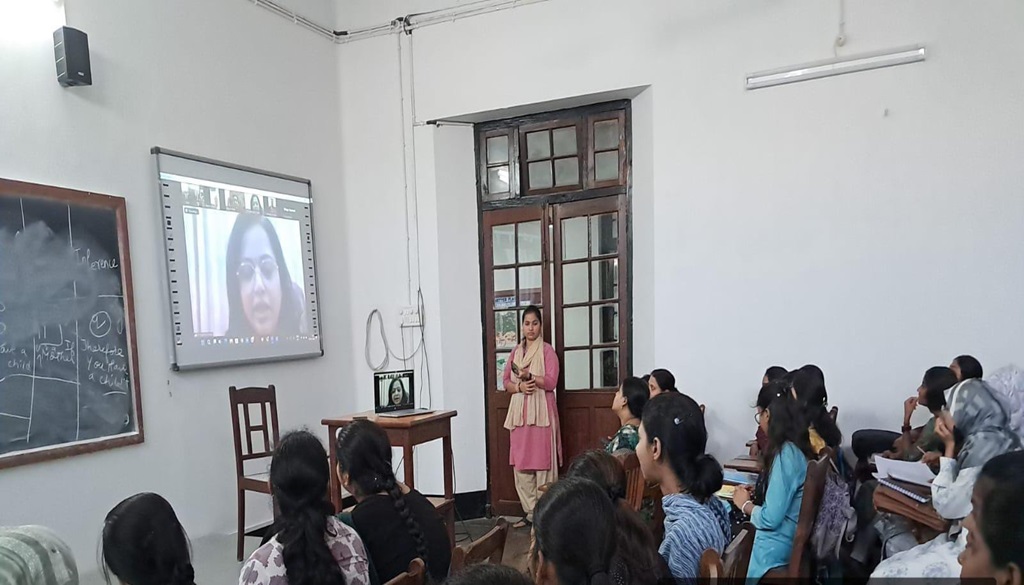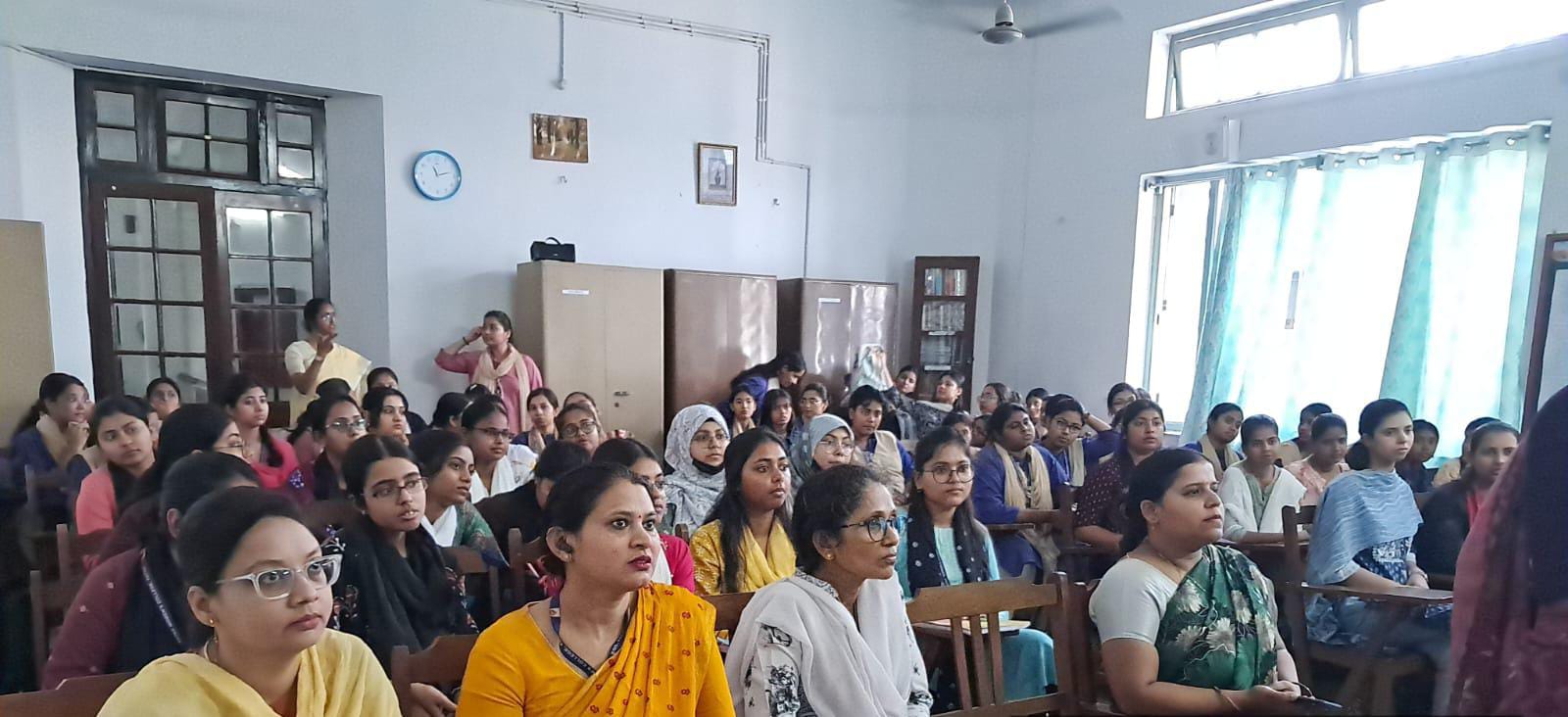Patna Women’s College Hosts Online Workshop on Intellectual Disabilities

Patna: In commemoration of World Mental Retardation Day 2024, the Department of Psychology at Patna Women’s College, Autonomous, Patna University, organized a virtual workshop centered on “Intellectual Disabilities: Diagnosis and Intervention.” Dr. Madhubala Yadav, a distinguished Rehabilitation & Consultant Child Psychologist from Psyuni Institute of Psychology and Allied Sciences, Lucknow, served as the esteemed resource person for the event.
Dr. Nupur Sinha, Head of the Department of Psychology, extended a warm welcome to Dr. Yadav on behalf of the college, marking the beginning of the insightful session. Dr. Yadav commenced the workshop by elucidating the evolution of terminology, emphasizing the shift from “mental retardation” to “intellectual disability.” She expounded on how intellectual disabilities constrain individuals across various life domains, underscoring that its onset could manifest as early as the prenatal period, impacting approximately 3% of the Indian population.
The session delved into the classification of intellectual disabilities, anchored in IQ assessments and educational capabilities. With an average IQ range defined between 90-110, individuals scoring below 70 are identified as intellectually disabled. Notably, genetic conditions such as Down’s syndrome were highlighted for their association with intellectual disabilities.

Dr. Yadav actively engaged participants in practical exercises, tasking them with mental age and IQ calculations, alongside other diagnostic computations. Attendees were presented with a case study, prompting them to apply standardized diagnostic tools like the Vineland Social Maturity Scale (VSMS) and Developmental Screening Test (DST) to facilitate diagnosis. The discussion extended to the formulation of management strategies encompassing primary, secondary, and tertiary prevention measures.
Moderating the session was Nupur Shree, Assistant Professor in the Department of Psychology, who ensured the smooth flow of interactions. Manisha Kumari, a Psychological Counsellor from the Guidance and Counselling Centre within the Department of Psychology, conveyed heartfelt gratitude in her vote of thanks, acknowledging the enriching insights shared by Dr. Yadav and the active participation of attendees.







